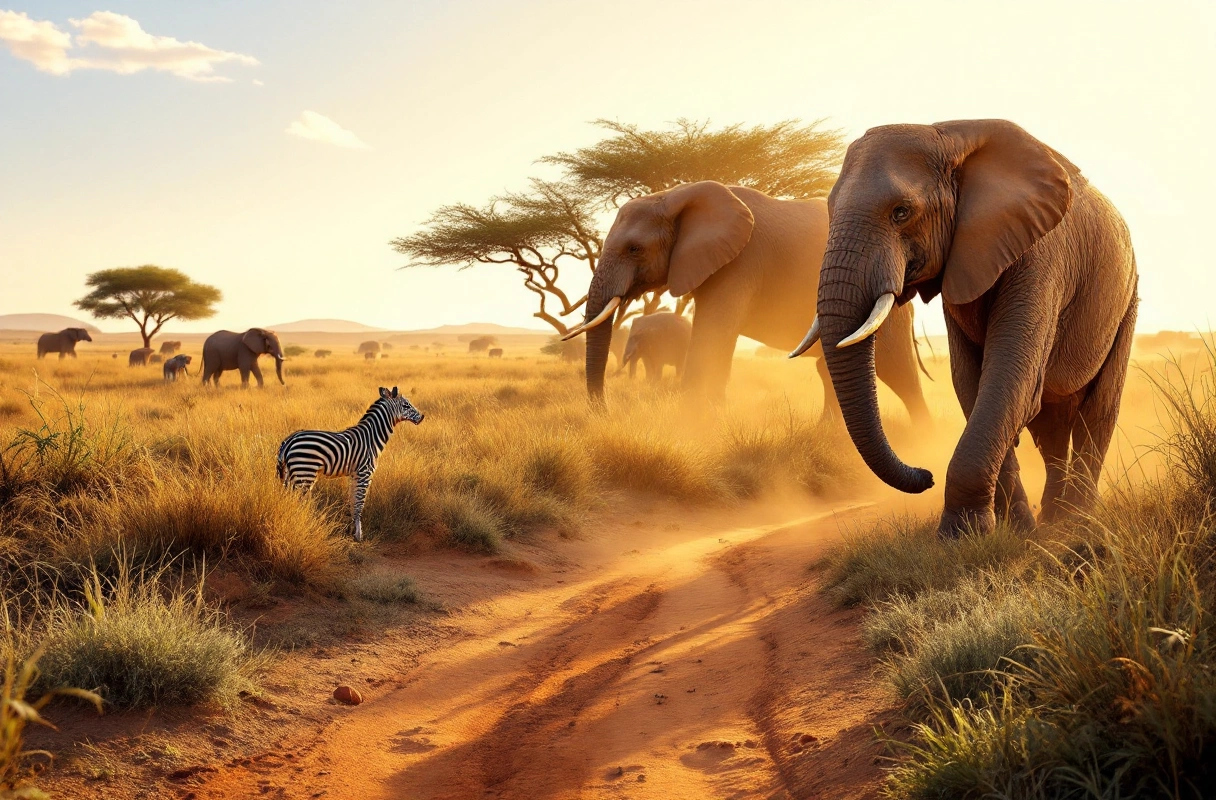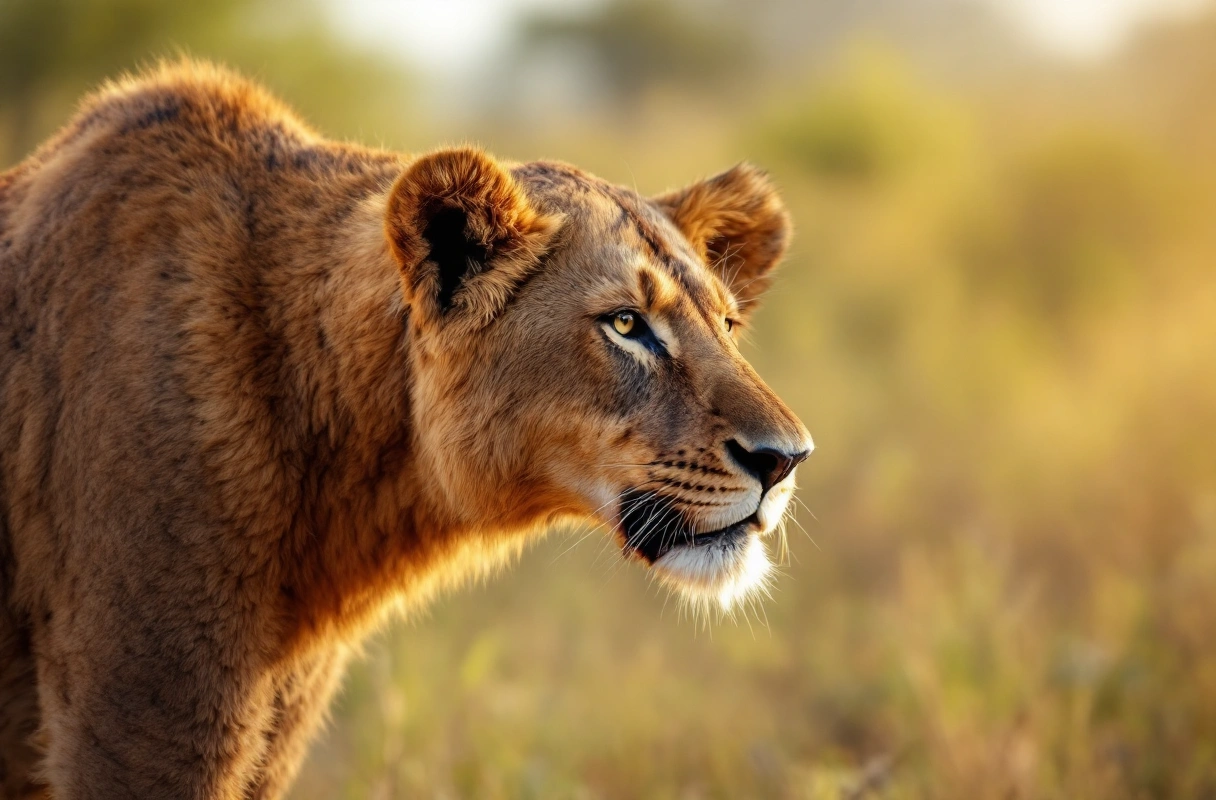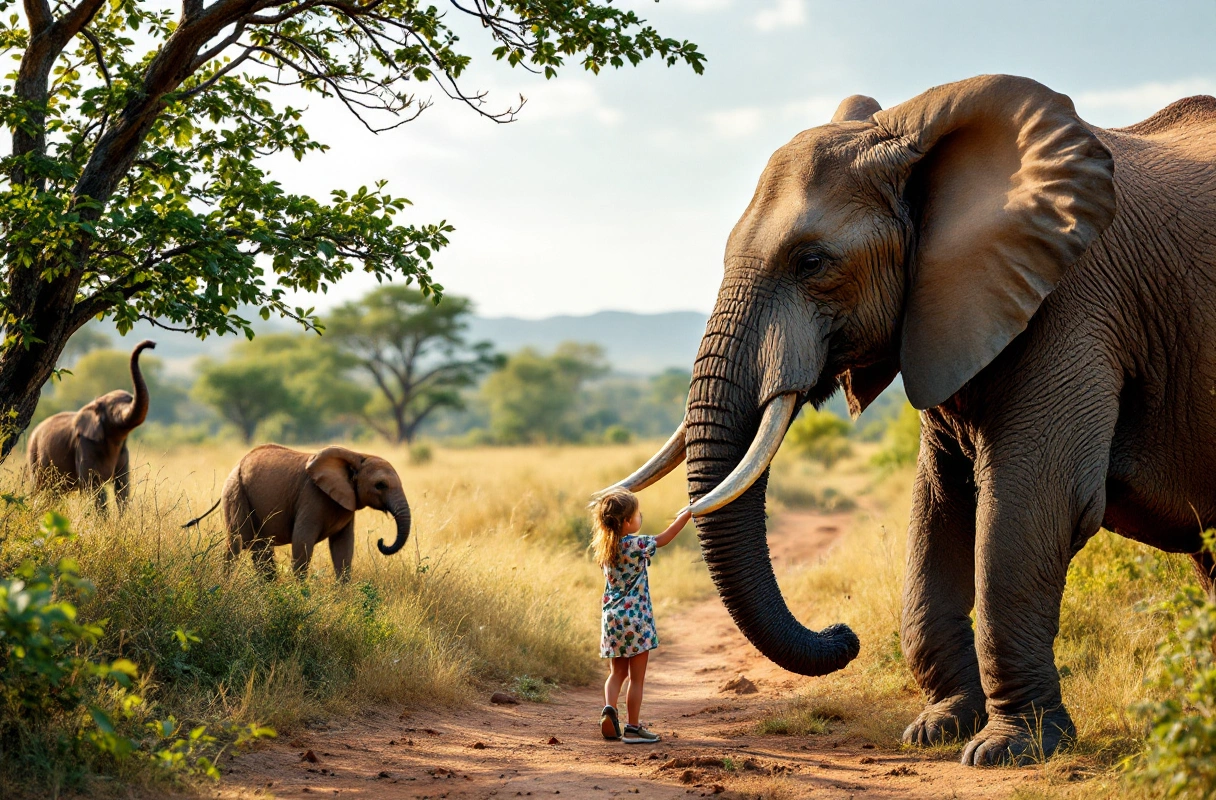
Eco-tourism has emerged as a powerful tool in the conservation of African animals and the protection of endangered species. This sustainable travel practice not only fosters a deeper understanding of the rich biodiversity of the African continent but also provides crucial financial support to local communities and conservation efforts. As travelers engage with nature and experience wildlife firsthand, they contribute to a model that prioritizes the health of ecosystems and the welfare of the animals that inhabit them.
In 2025, the focus on eco-tourism continues to grow, and its impact on African wildlife is more significant than ever. This article will explore how eco-tourism protects African animals, highlight the best times of year to see wildlife in Africa, and provide actionable insights for those interested in wildlife experiences.

Eco-tourism plays a vital role in the conservation of African animals by promoting sustainable practices and raising awareness about the threats they face. Here are some key ways in which eco-tourism contributes to wildlife preservation:
One of the most direct benefits of eco-tourism is the financial support it provides for conservation projects. Tourists pay for park fees, guided tours, and accommodations, with a significant portion of these funds directed towards protecting habitats and species.
Eco-tourism serves as an educational platform for travelers, helping them understand the importance of biodiversity and the need for conservation.
Eco-tourism emphasizes sustainable practices that minimize environmental impact and promote the well-being of both wildlife and local communities.

Understanding the best times of year to see wildlife in Africa can enhance the eco-tourism experience and maximize opportunities to observe African animals in their natural environments. Here are the top seasons for wildlife viewing across different regions of Africa:
The dry season is considered the best time for wildlife viewing in many African countries, including Kenya, Tanzania, and Botswana. During this time, animals congregate around water sources, making them easier to spot.
While the wet season may not be the first choice for many travelers, it offers unique advantages for wildlife viewing and photography.
Different regions in Africa have unique wildlife viewing seasons based on local climate patterns and animal behaviors.

Despite its benefits, eco-tourism is often misunderstood. Addressing these misconceptions can help travelers make informed decisions and enhance their wildlife experiences.
Many travelers believe that eco-tourism is exclusively for the affluent. However, eco-friendly options are available across various price ranges.
Another common misconception is that all eco-tourism tours offer similar experiences. In reality, eco-tourism operators vary significantly in their practices, ethics, and the quality of experiences they provide.
Some skeptics view eco-tourism as a passing trend. However, the increasing awareness of environmental issues and the need for sustainable travel practices indicate that eco-tourism is here to stay.
To ensure a positive impact on African animals and their ecosystems during your wildlife experiences, consider the following tips:
Research and select operators that are certified for their eco-friendly practices. Look for those who are committed to sustainability and community engagement.
Always follow guidelines provided by your guides and maintain a safe distance from animals. Avoid feeding or attempting to touch wildlife, as this can disrupt their natural behaviors.
Practice responsible waste management by reducing plastic use, recycling when possible, and leaving no trace during your travels. Carry reusable water bottles and bags to minimize your environmental footprint.
Engage with local communities by purchasing handmade crafts, participating in cultural experiences, and dining at locally-owned restaurants. This supports the local economy and fosters a sense of stewardship for wildlife.
Take the time to learn about the ecosystems you visit and share your knowledge with others. Raising awareness about the importance of conservation can inspire more people to engage in eco-tourism.
Eco-tourism not only enhances our understanding of African animals but also plays a crucial role in their protection. By choosing to travel responsibly and supporting sustainable practices, we can contribute to the conservation of endangered species and their habitats.
Banana Slug Club is dedicated to educating and inspiring nature enthusiasts, students, and kids about the wonders of the natural world. Through engaging resources and activities, we aim to foster a love for wildlife and the environment.
If you are eager to learn more about African animals and how you can support their conservation, visit our website or reach out to us for more information. Join us in our mission to protect the planet’s biodiversity and inspire future generations to appreciate the beauty of nature. Together, we can make a difference for African animals and the ecosystems they inhabit.
Get free resources, early access to new features and updates.
No spam. Just fun educational emails!